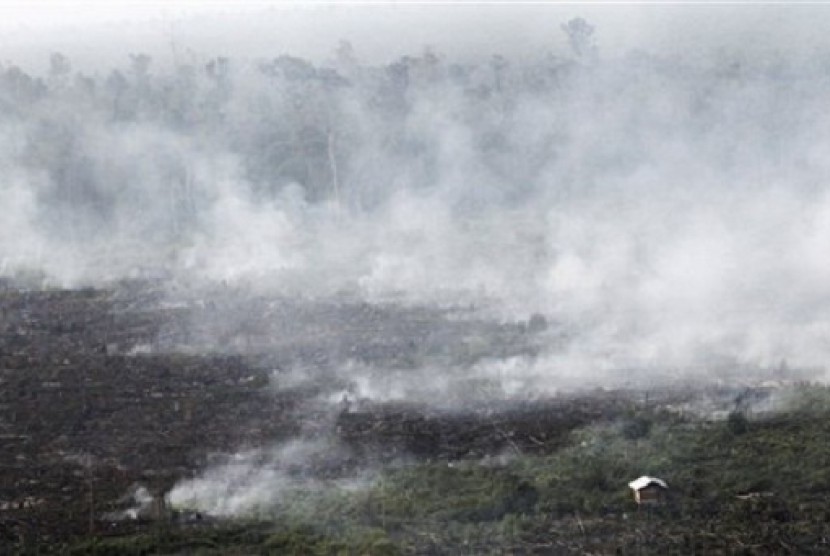REPUBLIKA.CO.ID, KUALA LUMPUR - Singapore pressed Indonesia on Wednesday to share maps that could help make plantation companies accountable for setting fires that cause smog in neighboring countries.
Secrecy over the maps, which reveal where agriculture firms operate on Indonesia's Sumatra island, has been a sensitive subject at a meeting of Southeast Asian environment ministers, nearly a month after Singapore suffered its worst recorded level of air pollution because of smoky haze blamed on Sumatran fires.
Indonesia's environment minister, Balthasar Kambuaya, agreed to recommend providing neighboring governments with land concession maps that show which companies might be responsible for fires that authorities detect. That fell short of Singapore's hope that Indonesia would also make the maps available to the public, the city-state's environment minister, Vivian Balakrishnan, told a news conference after talks in Kuala Lumpur, Malaysia's main city.
"It doesn't go as far as I would like, but nevertheless it's one step forward," Balakrishnan said.
Both ministers said Indonesia's reluctance was because of legal hindrances. The maps, involving fire-prone territories on peat land, would only be shared upon request on a case-by-case basis, Kambuaya said. The plan is subject to agreement by Southeast Asian leaders at an October summit.
Palm oil plantation owners and farmers have been blamed for illegally starting Sumatran fires as a cheap method of clearing land, instead of using tractors and bulldozers to cut down trees.
Indonesia dispatched planes and helicopters last month to battle widespread fires that upset both Singapore and Malaysia, which was forced to close hundreds of schools and declare a state of emergency in a southern town after noxious fumes drifted across the sea from Sumatra.
The haze shrouded landmarks and caused numerous Singaporeans and Malaysians to wear protective face masks outdoors amid a stifling smell of burning vegetation that posed health worries. The problem has occurred many times previously during midyear dry spells, but this year's pollution readings were particularly high.
Air quality has since improved, but countries will remain vigilant through early October for a possible return of the haze, according to a statement issued after Wednesday's meeting by government officials from Indonesia, Singapore, Malaysia, Brunei and Thailand. Other plans include improving early warning systems for fires and taking immediate actions to stop blazes from getting out of control.
"This cannot be business as usual," Balakrishnan said. "We need a multipronged approach. Otherwise we won't solve this problem and it will go on for decades."


